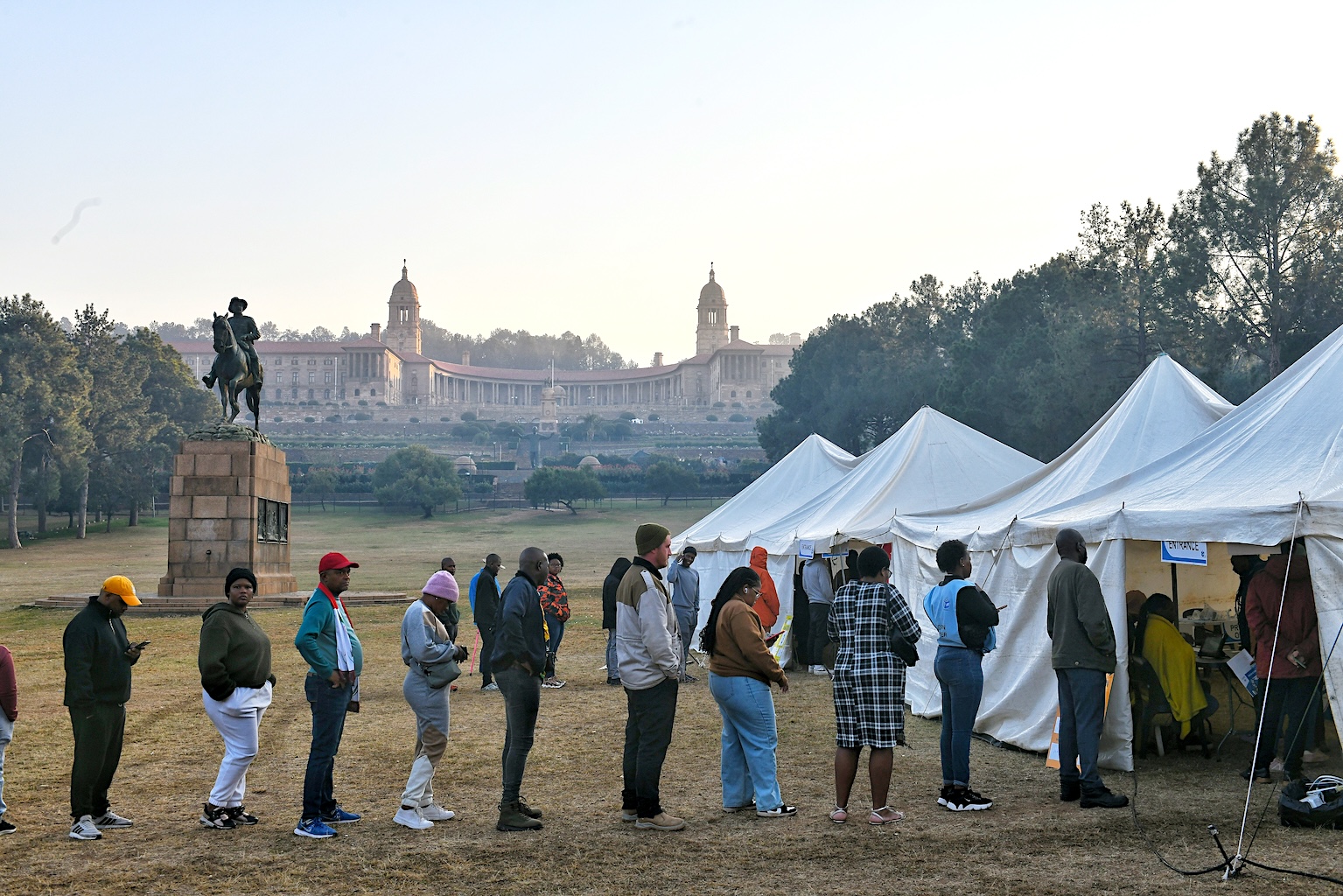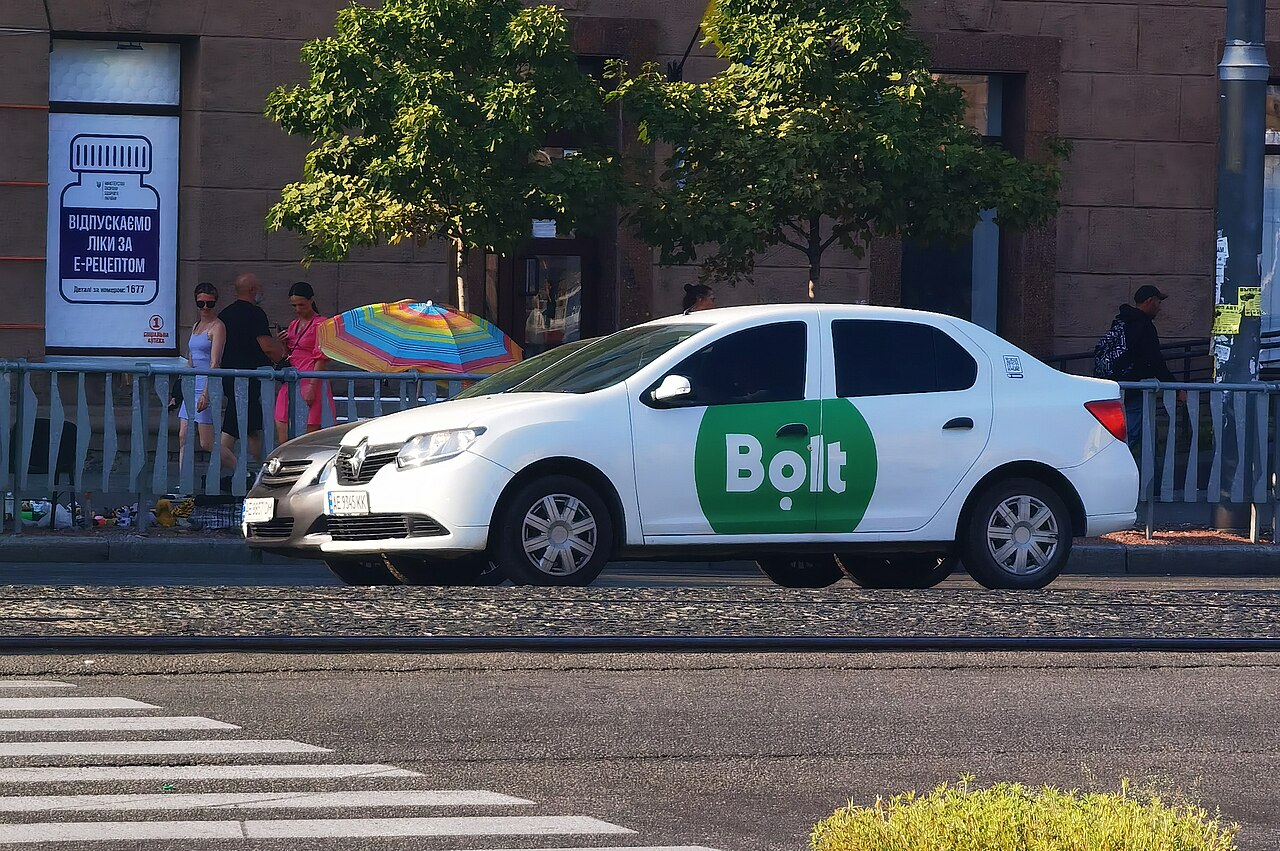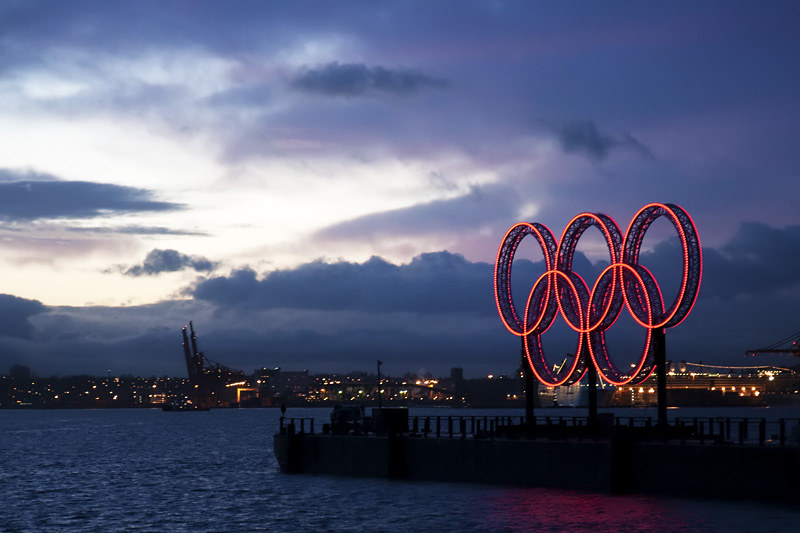On 29 May South Africans cast their vote, and for the first time in 30 years the ANC was denied their majority in parliament. The resulting hung parliament has led South Africa towards a Government of National Unity (GNU), where Cyril Ramaphosa’s cabinet has been divided amongst 11 political parties, with a promise of broad representation and higher levels of transparency.
“This is not the first GNU we have seen. We saw it in 1994, and it was wrapped under similar tones of a new social contract, ‘the new South Africa’,” says Kneo Mokgopa from the Nelson Mandela Foundation. He was speaking as part of a panel on last night’s episode of The Big Debate. The Big Debate, a town hall-style debate show, looked at how the GNU could be forged into a renewed social contract.
In 1994 South Africa entered into a similar agreement. Nelson Mandela became the first democratically elected President, with F.W. de Klerk of the National Party serving as one of two Deputy Presidents. “The same drum is being beaten now in 2024 as was being beaten in 1994, stability,” said Thabo Mbeki School at Unisa representative Darlene Miller.
Thirty years after the establishment of South Africa’s first Government of National Unity (GNU), the need for a new social contract has become increasingly urgent. The initial promise of the 1994 GNU, aimed at fostering unity and averting civil conflict, has not been fully realised
“We need to think about South Africa as an infected wound. It is a 500-year-old wound, from colonialism to apartheid. In 1994 we were sold a social contract of democracy but this is just a plaster on top of the wound,” said decolonial scholar Dr Wanelisa Xaba.
Persistent economic inequalities, social injustices, and the lingering wounds of apartheid and colonialism continue to undermine inclusive participation and healing. “We cannot achieve justice as healing without acknowledging how far behind we are in terms of the redistribution of resources,” said human rights lawyer Mandisa Shandu. “The most dangerous threat to this country is the distance between the stinking rich and abject poor,” said Methodist Bishop Paul Verryn.
Today, amid the aftermath of recent elections, South Africans are once again questioning how to unite a divided nation. A renewed social contract is needed to genuinely address the aspirations and needs of all South Africans, but what the new social contract looks like is still up for debate.
Panellists on The Big Debate last night delved into these questions, looking at the necessary preconditions for this new social contract and whether the 2024 GNU will do better than the last.
“The people have denied all political parties a majority, and as a result it is upon every party that seeks to build a progressive nation to contribute the little they can so that this nation shall be a better place for the coming generation,” said Victor Serakalala of the Pan African Congress (PAC).
However, reflecting on the last 30 years, trust in our politicians has dwindled. “We don’t deserve the appalling leadership we have. If you leave it to the politicians they will care for themselves and their backers, who are in fact the same people,” said Psychologist Saths Cooper.
If South Africa does not want to repeat the past, the creation of a new social contract cannot be left to politicians alone. “If we leave the social contract to political parties alone, we will continue to complain. As Africans, we need to take charge of our destination,” said Serakalala.
“A new social contract requires the involvement of the entire community. It needs commitment from all sectors of society. We should be thinking about religious organisations, student movements, and young people. We should be thinking across the board and not only about political parties,” Serakalala added. The panellists on The Big Debate stressed that inclusivity and access are essential to avoid the pitfalls of the previous GNU and to build a sustainable future for South Africa.
But, “How do we create community forums where we can engage in an effective way that will bring tangible change?” asked Busisiwe Seabe, an activist and researcher.
Universities have historically been crucibles for social change and innovation, playing a pivotal role in fostering new social contracts. However, in recent years, these institutions have fallen short of this responsibility. “We must not lock ourselves in a particular box of only focusing on institutions of higher learning, because those are institutions of privilege. If we are going to continue around the parallels of class divisions that have been created and perpetuated, then we will aspire for different things at the same time while achieving absolutely nothing,” said Seabe. “Our universities need to be a part of taking the fragments of society and bringing that back together,” said Miller.
The urgency for a new social contract in South Africa is a given. As the nation navigates the complexities of a new GNU, The Big Debate highlighted that the lessons from the past 30 years must guide our new social contract.
This story forms the basis of a new series of the current affairs show The Big Debate, starting this month. Each episode will examine South Africa’s thirty years of democracy – its successes and shortcomings. /explain/ is partnered with The Big Debate to cover the series as it unpacks these issues.
Emma is a freshly graduated Journalist from Stellenbosch University, who also holds an Honours in history. She joined the explain team, eager to provide thorough and truthful information and connect with her generation.




